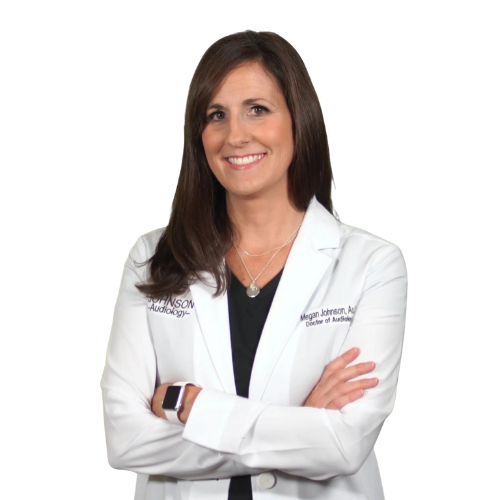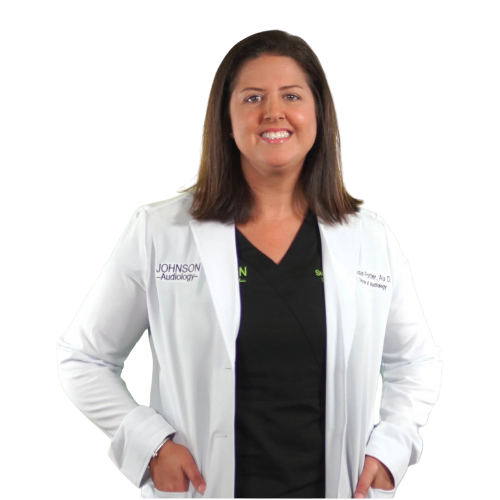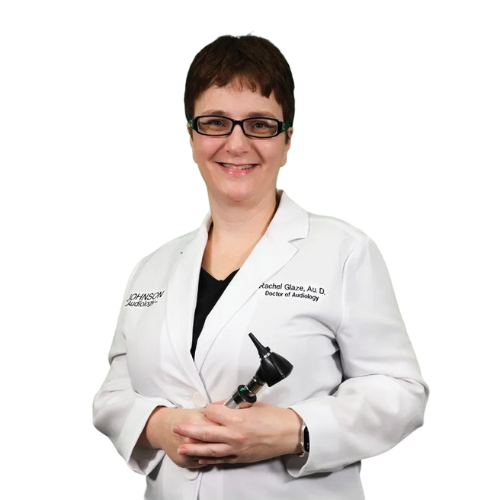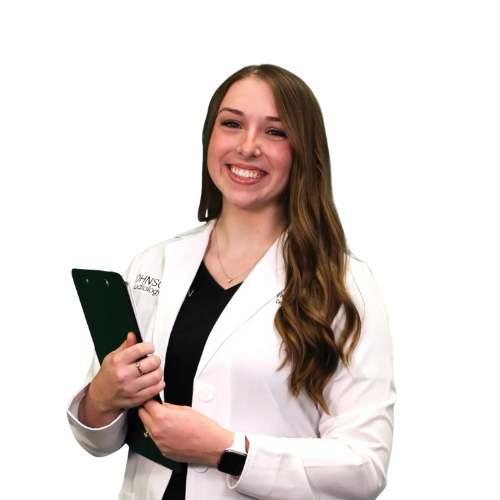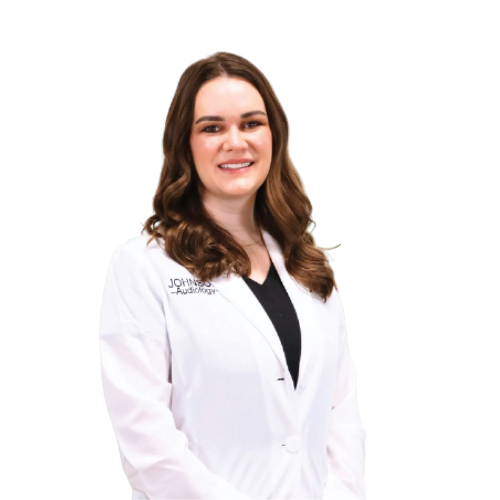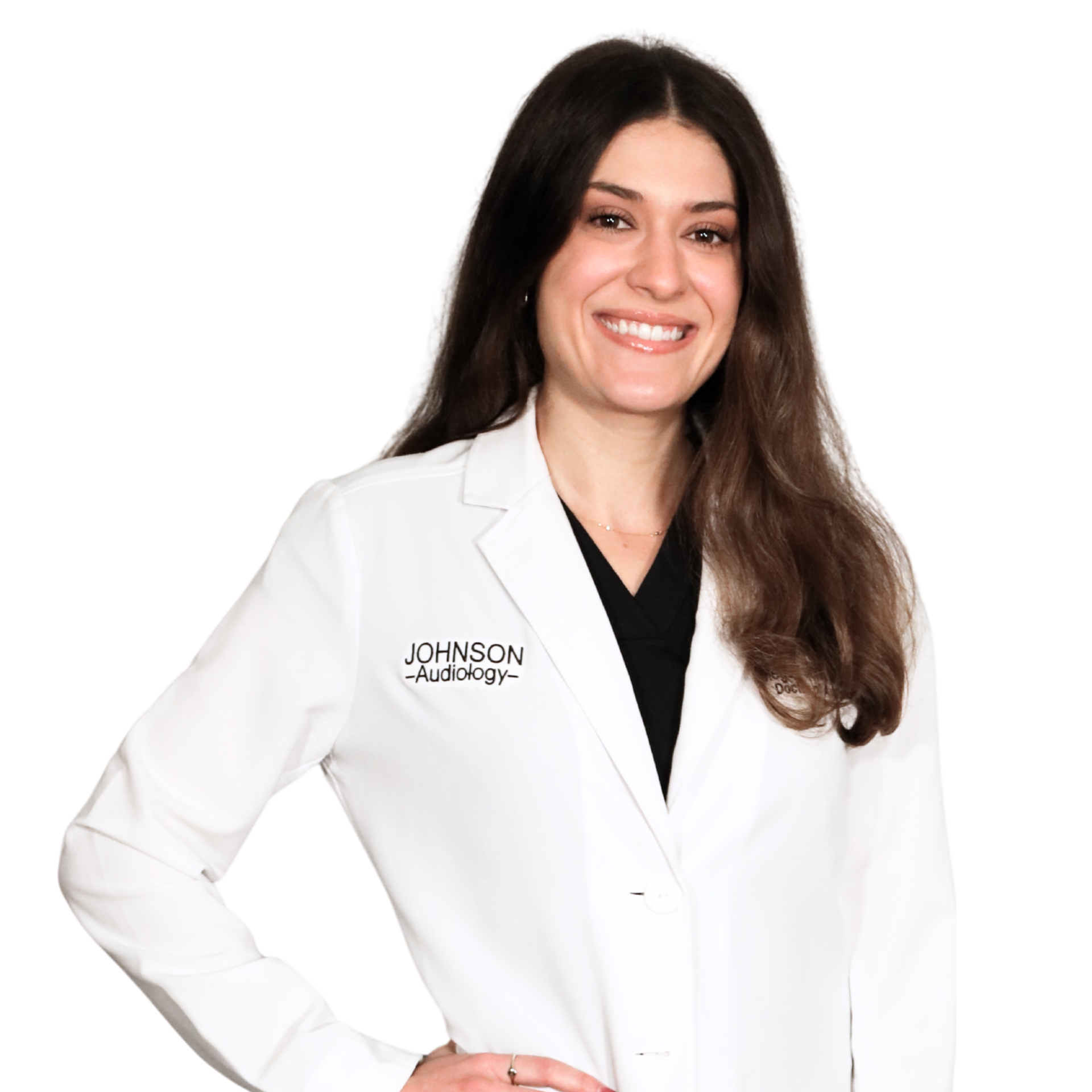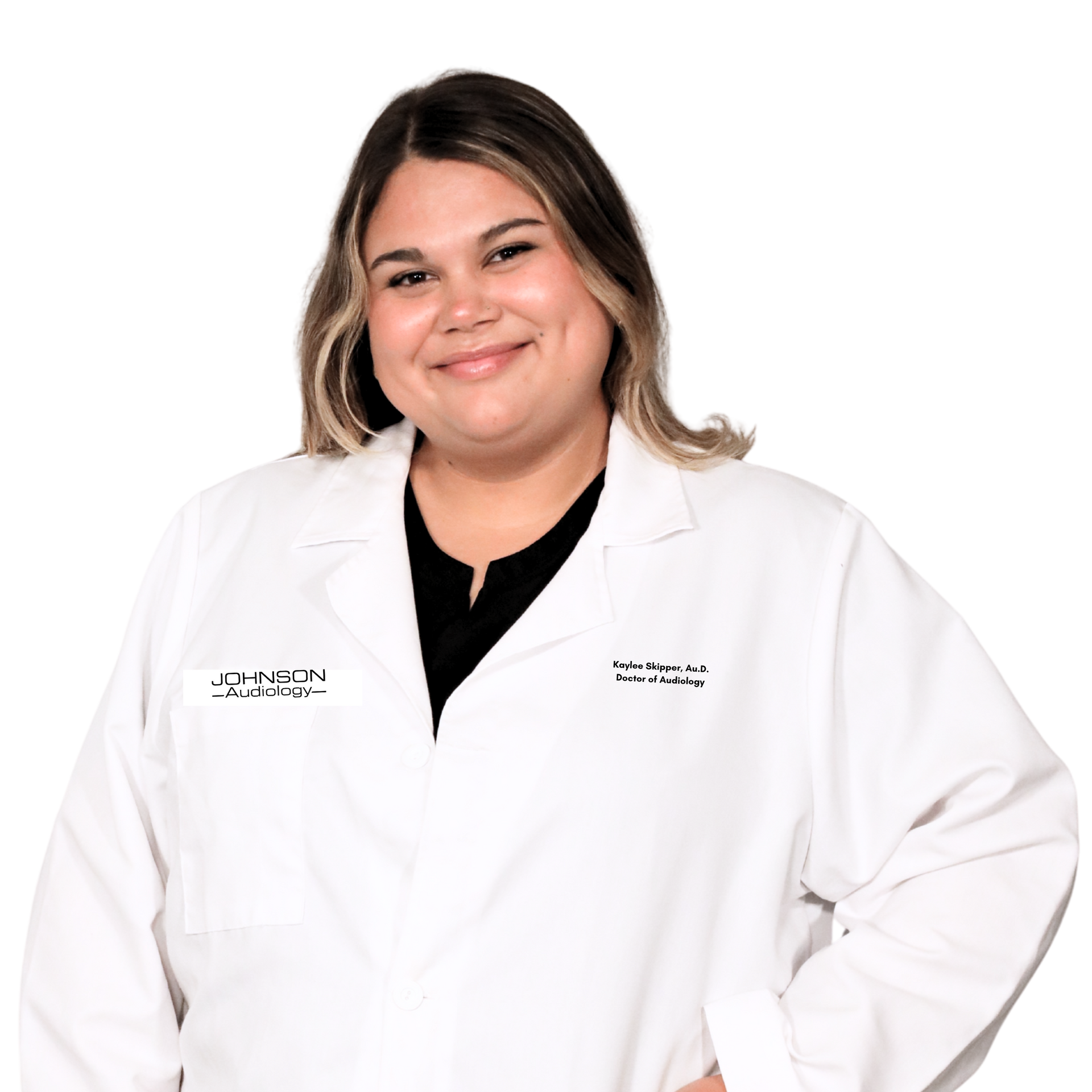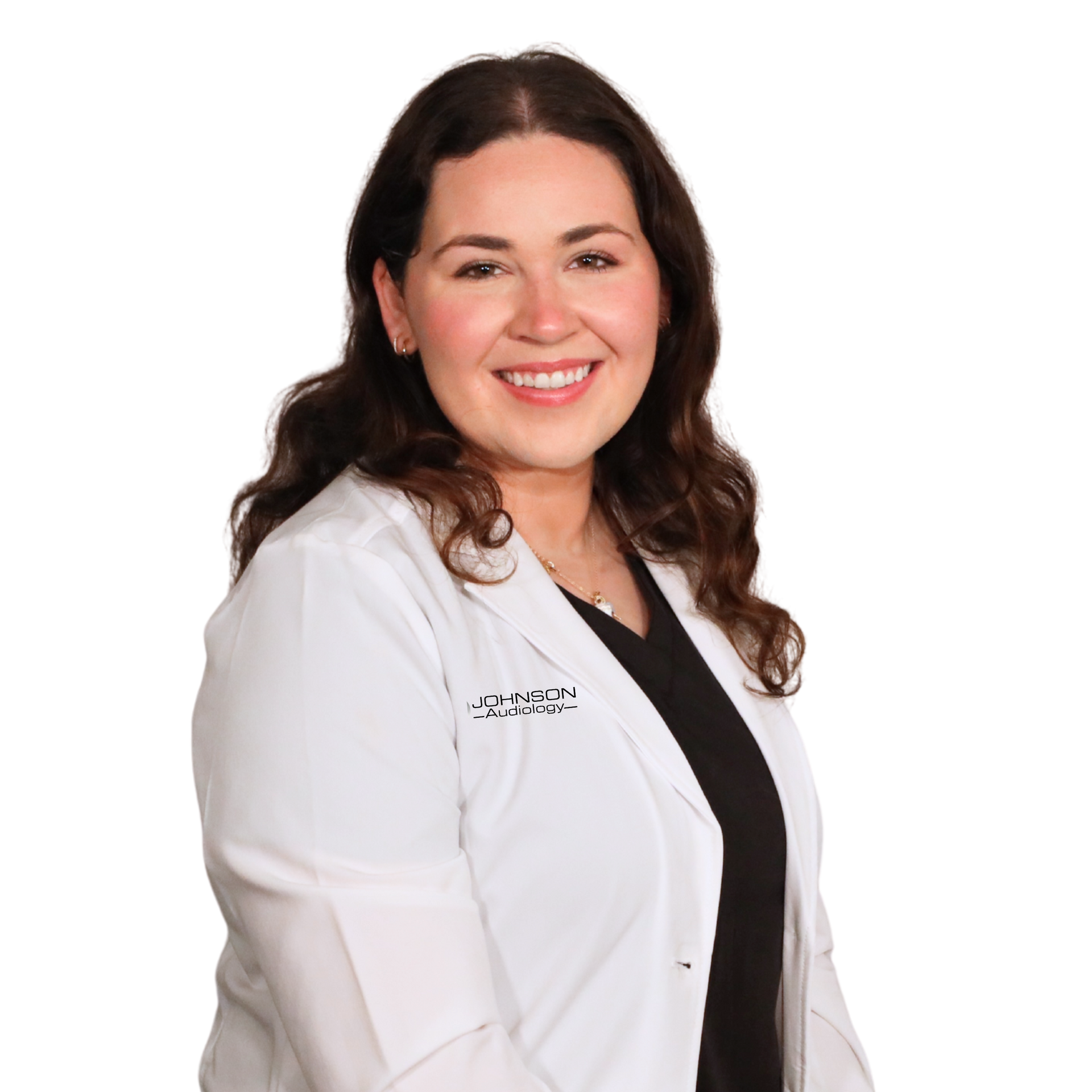Meet the Team Behind Johnson Audiology – Your Partners in Better Hearing

Your Hearing is Our Team's Top Priority
Why settle for one audiologist when you can have a whole team working to help you hear? When it comes to your personalized treatment plan, multiple heads really are better than one; that’s why our audiologists share their expertise and ideas with one another, collaborate, and problem solve together. All to bring you the best care possible.
This is a stellar team you have working for you. Each of our audiologists are university-degreed, graduated top in their class and have more than 100 years of combined experience serving patients. They have a fervor for this field and see their chosen profession as a calling, not just a job. Get to know these intelligent, compassionate, fun-loving, teammates below. There’s a lot of personality beneath those white lab coats.
Meet the Johnson Audiology Team
Dr. Megan Johnson
Audiologist
Practice Founder & Owner
Dr. Anna Wade
Audiologist
Cartersville, GA
Dr. Susan Porter
Audiologist
Chattanooga, TN
Dr. Carly Ducharme
Audiologist
Cartersville, GA
Dr. Rachel Glaze
Audiologist
Hixson, TN
Dr. Kayleigh McCollum
Audiologist
Chattanooga, TN

